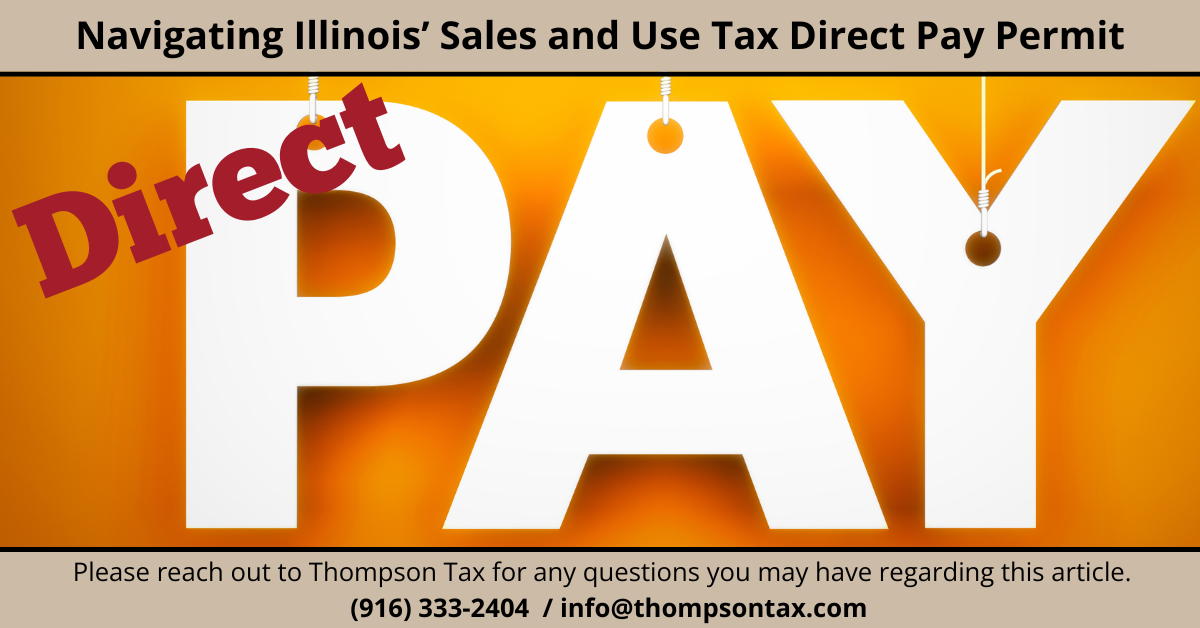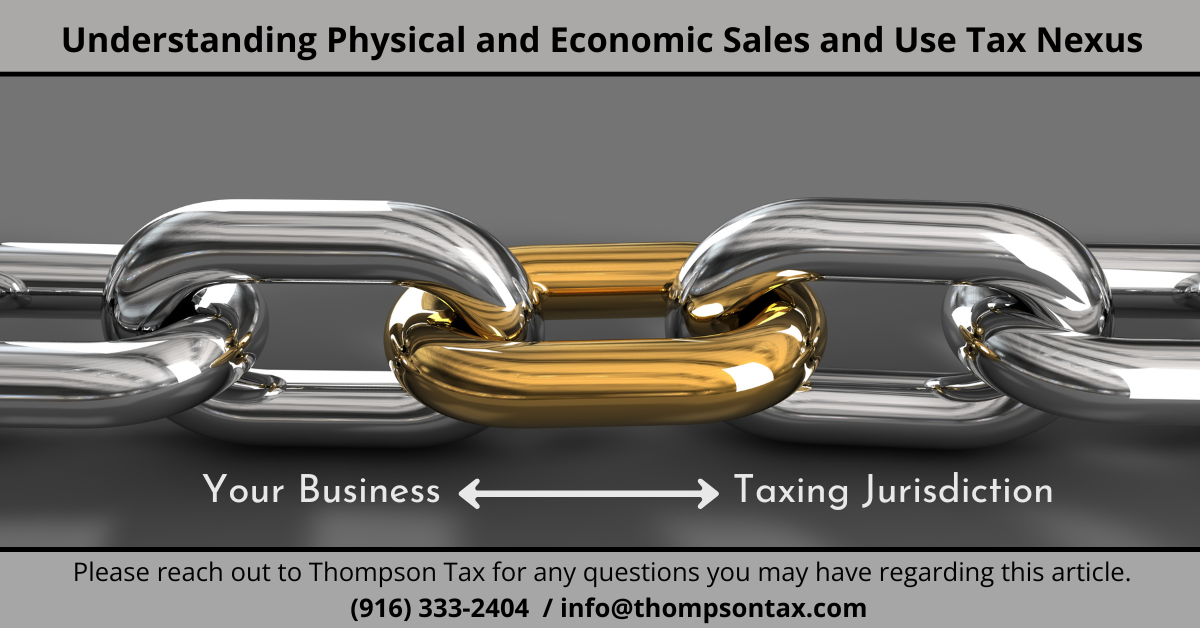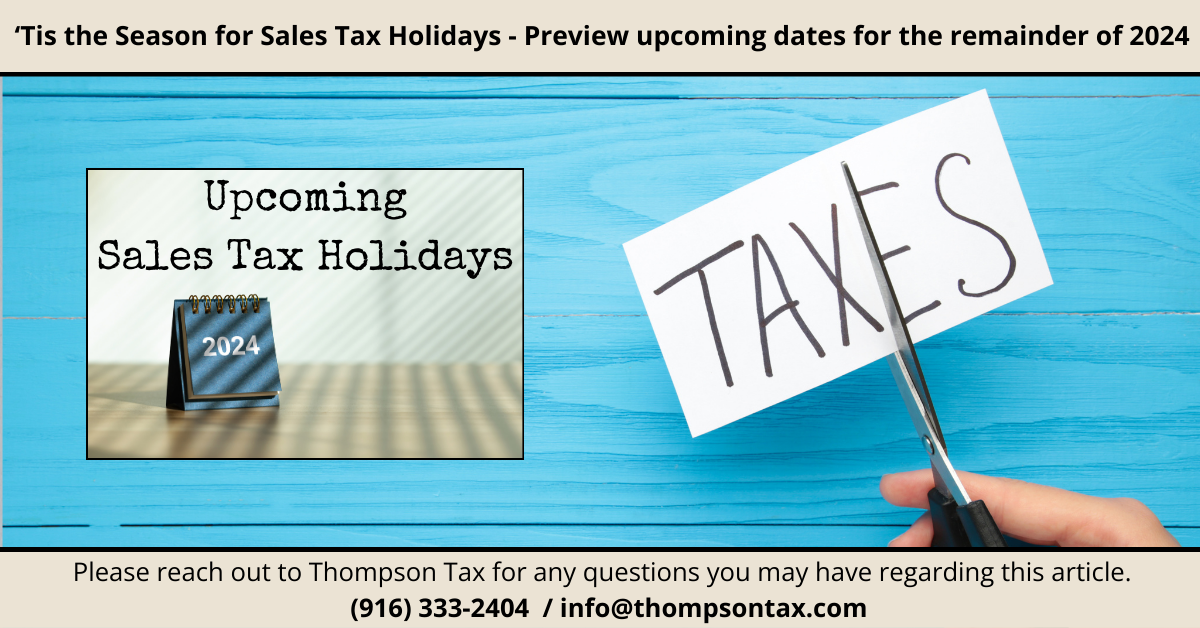Navigating Illinois Sales and Use Tax: Current and 2025 Direct Pay Requirements

The landscape of sales and use tax compliance is constantly evolving, particularly for businesses operating in Illinois. The state’s Direct Pay Permit (DPP) program offers a way to streamline tax reporting and payment, so staying updated on current and forthcoming changes is essential.
Understanding the Illinois Direct Pay Permit
The Direct Pay Permit (DPP) allows qualifying businesses to pay use tax directly to the Illinois Department of Revenue (IDOR) rather than at the point of purchase. This program is especially beneficial for companies dealing with complex transactions, large-scale purchasing, or situations where determining the taxability of purchases can be challenging.
Current Requirements for the Direct Pay Permit
As of 2024, businesses seeking to participate in Illinois’ DPP program must meet several critical criteria:
1. Eligibility Criteria:
- Complex Tax Situations: Businesses must demonstrate that they frequently encounter complex situations where determining sales tax liability is problematic. This often applies to companies involved in manufacturing, construction, or those with multi-state operations.
- Significant Purchases: A business must have substantial annual taxable purchases to qualify. While the exact threshold can vary, companies must demonstrate a certain volume of transactions that justify using a DPP.
2. Application Process:
- The process to obtain a DPP involves submitting a detailed application to the IDOR, outlining the business’s tax situation, and providing supporting documentation. The department reviews each application on a case-by-case basis to determine eligibility.
3. Reporting and Compliance:
- Once granted a DPP, businesses are responsible for remitting use tax directly to the IDOR. This includes regular reporting of taxable purchases, adhering to strict record-keeping practices, and ensuring timely payment of taxes.
4. Permissible Purchases:
- Not all purchases can be made under a DPP. Businesses must be aware of the categories of goods and services eligible for direct pay, as certain transactions may still require payment of sales tax at the point of sale.
5. Ongoing Requirements:
- Compliance doesn’t end with receiving a DPP. Businesses must continually monitor their tax situation, as the IDOR may review or audit DPP holders to ensure they are correctly managing their tax liabilities.
Anticipated Changes in 2025
Looking ahead to 2025, the IDOR is expected to implement several changes to the Direct Pay Permit requirements, reflecting a broader trend toward tightening tax compliance and enhancing revenue collection.
1. Requirement to Conduct an Annual Review:
- DPP holders will be required to conduct an annual review of their purchase activities for the 12-month period ending December 31 of the prior calendar year. This review must be completed by March 31, 2025, to ensure that purchases were sourced correctly and that the appropriate tax rates were applied. The initial review under these new rules is due by March 31, 2025, and will cover the calendar year ending December 31, 2024.
- If the review uncovers any errors in sourcing or tax rates, the permit holder must file an amended return by April 20 of the same year to correct these discrepancies. Failure to conduct the purchase review may result in a $6,000 penalty. However, this penalty can be avoided if at least 95% of the transactions for the reviewed period were correctly sourced and taxed or if the permit holder exercised ordinary business care and diligence.
2. Revised Eligibility Thresholds:
- The IDOR may increase the thresholds for qualifying purchases or introduce new criteria that focus on the business’s operational complexity. This could mean that only larger businesses or those with more intricate tax situations will be eligible for a DPP.
3. Enhanced Application Scrutiny:
- The application process is likely to become more rigorous, with additional documentation being required to justify the need for a DPP. Businesses may need to provide more detailed financial records, transaction histories, and explanations of their tax challenges.
4. Stricter Compliance Measures:
- Reporting requirements are expected to become more stringent, with the possibility of more frequent audits or reviews by the IDOR. Businesses may need to enhance their internal controls and tax reporting systems to ensure full compliance.
5. Potential for Narrowed Scope:
- The IDOR may revise the types of purchases that can be made under a DPP, potentially narrowing the scope to focus on specific industries or transaction types. Businesses must stay informed about these changes to avoid inadvertently violating the terms of their DPP.
6. Increased Educational Resources:
- To help businesses adapt to these changes, the IDOR is expected to roll out more educational resources, including updated guidelines, webinars, and FAQs. Staying engaged with these resources will be crucial for businesses to navigate the evolving landscape.
Preparing for 2025: What Businesses Should Do Now
To prepare for the upcoming changes, businesses currently using or considering a Direct Pay Permit should take proactive steps:
- Review Current Practices: Assess your current use of the DPP, ensuring that all procedures align with IDOR requirements. Identify any areas where compliance could be improved.
- Stay Informed: Follow IDOR announcements regarding changes to the DPP program and regularly check for updates on eligibility, reporting, and permissible purchases.
- Consult with Tax Professionals: Consider working with tax professionals, such as Thompson Tax, who specialize in Illinois sales and use tax. We can provide guidance on how to best prepare for the 2025 changes and ensure ongoing compliance.
Stay Informed!
The Direct Pay Permit is a valuable tool for businesses facing complex sales and use tax challenges in Illinois. However, with significant changes on the horizon in 2025, staying informed and prepared is essential. By understanding the current requirements and anticipating the future landscape, businesses can continue to benefit from the DPP while avoiding potential pitfalls.
Reach out to Thompson Tax today for further updates. We are your one-stop sales and use tax shop!


